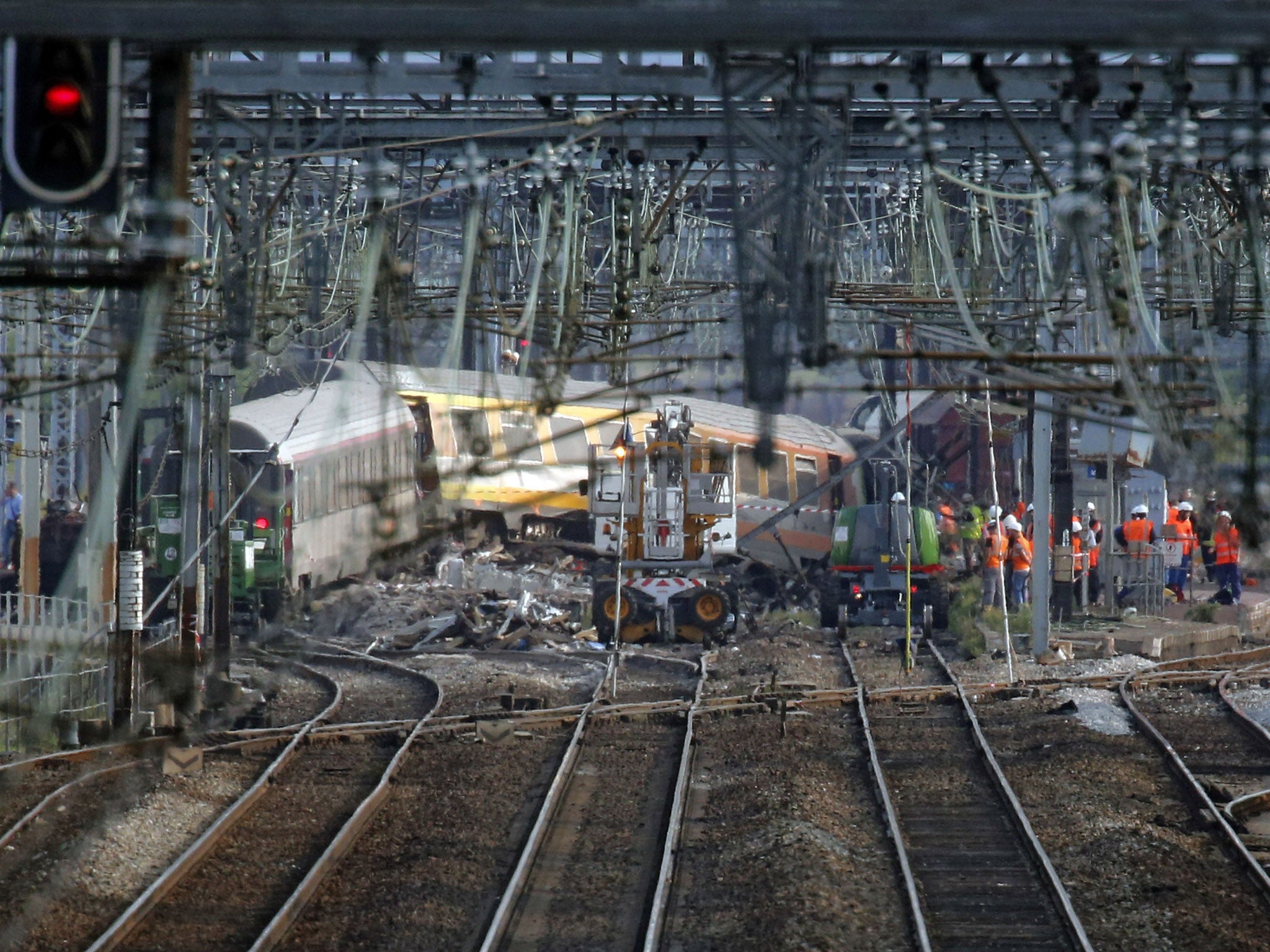Foul play suspected in fatal express train crash near Paris

Your support helps us to tell the story
From reproductive rights to climate change to Big Tech, The Independent is on the ground when the story is developing. Whether it's investigating the financials of Elon Musk's pro-Trump PAC or producing our latest documentary, 'The A Word', which shines a light on the American women fighting for reproductive rights, we know how important it is to parse out the facts from the messaging.
At such a critical moment in US history, we need reporters on the ground. Your donation allows us to keep sending journalists to speak to both sides of the story.
The Independent is trusted by Americans across the entire political spectrum. And unlike many other quality news outlets, we choose not to lock Americans out of our reporting and analysis with paywalls. We believe quality journalism should be available to everyone, paid for by those who can afford it.
Your support makes all the difference.Fears are growing that sabotage or vandalism might have caused the train crash near Paris last Friday in which six people died.
Three of the four bolts fixing a steel plate which jumped out of position to derail the Paris-Limoges express are believed to have broken or come loose – something which is regarded as being almost impossible.
“In the memory of railwaymen, bolts have never given way on their own,” said Didier Aubert, leader of the railway section of the CFDT trades union federation. “A deliberate act of sabotage cannot be excluded.”
Officially, equipment failure is still regarded as the most likely cause of France’s worst railway accident for six years. But union leaders and railway experts say the provisional explanation put forward by the state railway company, the SNCF, is difficult to swallow.
A hefty steel plate joining two sections of rail – a “fishplate” – is believed to have leaped out of position and become wedged in point-work (where tracks criss-cross) at the approach to the station of Brétigny-sur-Orge, 25 miles south of Paris.
The axles of the third and fourth carriages of the crowded express, which was travelling at 80mph, struck the metal plate and the last four carriages derailed. Four people on the station platform and two people on the train were killed.
The track had been checked eight days before the accident. Railway experts say that it is conceivable for one bolt in a fishplate to break or come loose, but almost impossible that three out of four should fail at the same time.
Join our commenting forum
Join thought-provoking conversations, follow other Independent readers and see their replies
Comments